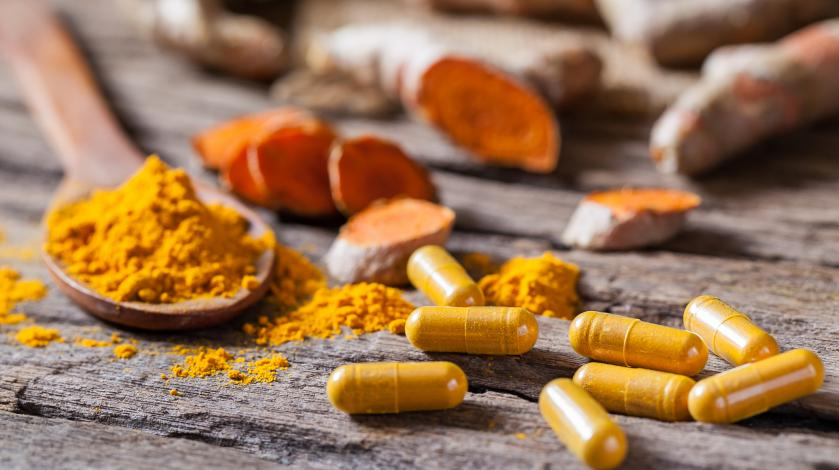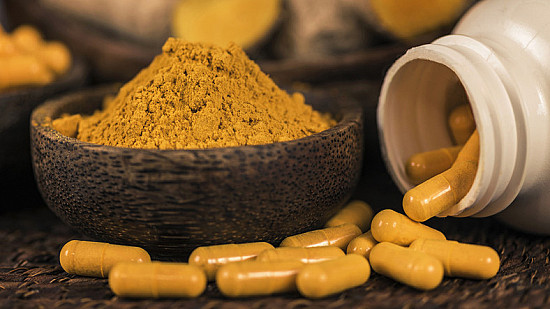Turmeric, with its vibrant golden hue, has long been celebrated for its potential health benefits, especially due to its powerful antioxidant and anti-inflammatory compound, curcumin. Many people, like your sister, have turned to turmeric supplements for these benefits, often consuming multiple doses daily. But how much turmeric is too much? This article explores the benefits, recommended dosages, and potential risks of taking turmeric supplements excessively.
Understanding Turmeric and Curcumin’s Benefits

Turmeric’s rise as a superfood is largely due to curcumin, its primary active ingredient, which has powerful antioxidant and anti-inflammatory effects. Studies suggest curcumin may help with various health conditions, from arthritis and cardiovascular issues to enhancing brain health and reducing oxidative stress.
- Antioxidant Properties: Curcumin neutralizes harmful free radicals in the body, potentially slowing down cell damage and aging.
- Anti-Inflammatory Effects: Chronic inflammation is linked to numerous health conditions, and curcumin’s anti-inflammatory properties can help reduce this risk.
While turmeric and curcumin supplements are popular, understanding the ideal dosage and potential side effects is key to reaping benefits safely.
Recommended Dosage of Turmeric Supplements
For most people, moderate doses of curcumin can be beneficial. Health professionals generally suggest:
- Safe Range: A daily curcumin intake between 100 to 500 mg is widely regarded as safe and effective. This amount often translates to about 1-3 grams of turmeric powder.
- Supplement Label Guidance: Since different brands have varying concentrations of curcumin, always adhere to the dosage instructions on your specific supplement’s label.
- Consultation with Healthcare Providers: Especially for high doses, consulting a healthcare provider is essential to ensure compatibility with your personal health needs.
Exceeding recommended dosages, as with any supplement, can lead to unexpected health concerns, underscoring the importance of sticking within these guidelines.
The Risks of Excessive Turmeric Supplement Intake
Taking multiple turmeric supplements daily may seem harmless, but excessive intake can lead to a variety of adverse effects, especially when exceeding recommended curcumin dosages. Here are some key risks associated with high-dose turmeric supplementation:
- Digestive Issues: Curcumin can irritate the digestive tract when taken in large amounts, leading to symptoms like nausea, bloating, and diarrhea. In sensitive individuals, high doses can even cause ulcers or gastritis.
- Increased Bleeding Risk: Turmeric has blood-thinning properties. High doses may interfere with blood clotting and heighten bleeding risks, particularly for those on blood-thinning medications like aspirin or warfarin.
- Liver Health Concerns: The liver processes curcumin, so excessive intake can place undue stress on this organ. Some cases have shown liver toxicity from high-dose turmeric supplements, making moderation crucial.
- Interaction with Medications: Turmeric can interact with several medications, such as diabetes medications, blood pressure pills, and anticoagulants. Always consult your doctor if you’re on medication before introducing turmeric supplements into your routine.
These potential risks highlight that more turmeric isn’t necessarily better, especially without proper medical guidance.
Understanding Individual Needs for Safe Turmeric Use

People’s needs and tolerances to turmeric can vary widely based on individual health conditions, diet, and lifestyle factors. A one-size-fits-all approach doesn’t apply to turmeric, and determining the right dosage requires considering several factors:
- Health Conditions: Those with pre-existing conditions like liver issues, digestive disorders, or blood disorders should be particularly cautious with turmeric dosages.
- Medication Use: Individuals on prescription medications should be aware of potential interactions. Turmeric can impact the effectiveness or side effects of certain medications.
- Overall Diet: If your diet is already rich in antioxidants or anti-inflammatory foods, you may not need as much turmeric supplementation.
For best results, personalized advice from a healthcare provider is the safest route to determine the right turmeric dose for you.
Signs of Turmeric Overuse to Watch Out For
If someone is taking excessive turmeric or curcumin, certain symptoms can act as warning signs that the dosage may be too high. Recognizing these early can prevent long-term issues:
- Frequent Digestive Upset: Consistent stomach discomfort, bloating, or diarrhea may indicate turmeric overuse.
- Unusual Bruising or Bleeding: Easy bruising, excessive nosebleeds, or prolonged bleeding from minor cuts can be a sign of curcumin’s blood-thinning effects.
- Fatigue or Jaundice: High doses impacting the liver can result in fatigue or, in extreme cases, jaundice (a yellowing of the skin or eyes).
If any of these symptoms occur, reduce intake immediately and consult a healthcare provider to reassess the dosage.
Alternatives to High-Dose Turmeric Supplements

For those who wish to incorporate turmeric’s benefits without relying on high doses of supplements, there are natural ways to enjoy this spice in moderation:
- Dietary Turmeric: Cooking with turmeric adds flavor and health benefits without the risks of concentrated supplements. Try adding turmeric to soups, curries, or smoothies.
- Turmeric Tea or Golden Milk: These warming drinks are popular ways to consume turmeric daily and can be made at home with natural ingredients.
- Turmeric Blends: Many pre-made spice blends combine turmeric with other spices like black pepper, which enhances curcumin absorption without requiring large amounts.
These alternatives can offer the benefits of turmeric without the potential risks associated with high supplement doses.
Best Practices for Safe Turmeric Supplementation
If you choose to continue with turmeric supplements, some guidelines can help maximize the benefits while keeping side effects at bay:

- Start Small: Begin with the lowest recommended dose, especially if you’re new to turmeric supplements, and gradually increase only if needed.
- Look for Quality Brands: High-quality supplements often provide better curcumin absorption. Opt for reputable brands that include piperine (black pepper extract), which enhances curcumin’s bioavailability.
- Monitor for Side Effects: Keep an eye out for any digestive issues or unusual symptoms and adjust the dosage as needed.
- Rotate Usage: Instead of daily use, consider taking breaks or rotating with other anti-inflammatory supplements to reduce the likelihood of tolerance or side effects.
Adopting these practices helps ensure that your turmeric supplementation is both safe and effective.
Conclusion: Moderation is Key with Turmeric Supplements
While turmeric supplements offer impressive health benefits, taking excessive amounts can do more harm than good. The key is to balance the intake with what your body truly needs, avoiding the temptation to overdo it. If your sister takes 3-4 turmeric supplements daily, it may be wise for her to consider reducing the dose or seeking medical guidance to avoid potential health risks.
In the end, the benefits of turmeric are best enjoyed in moderation. By following recommended dosages and paying attention to your body’s response, you can safely incorporate this powerful spice into your wellness routine.


